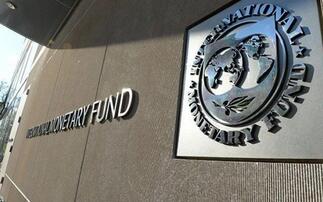INDUSTRY VOICE: The rise in bond yields and concurrent shakiness in equity markets may emanate from a subtle but important shift in risk sentiment on inflation.
The rise in bond yields and concurrent shakiness in equity markets may emanate from a subtle but important shift in risk sentiment on inflation. This has important ramifications for stock and bond investors.
In the U.S., both actual inflation and inflation expectations are accelerating. While the increase has been modest so far - the core Consumer Price Index (CPI) moved from 1.8% year-over-year in October 2017 to 2.1% year-over-year in March 2018, and breakeven inflation (or BEI, which is the spread between nominal and real (i.e., adjusted for inflation) U.S. Treasury bond yields of the same maturity) for 10-year Treasuries moved from 1.85% to 2.15% over the same time frame - many market participants worry that U.S. inflation could accelerate further. They can point to the large deficit-induced fiscal spending, the likelihood of tariffs on imports and geopolitical turmoil in the Middle East, among other causes.
The important point here is not just the rise in inflation, but an inflection point in investors' assessment of inflation risk: It is shifting from deflation or too little inflation to too much inflation.
This explains why bond yields have been rising recently while equity prices have been falling, a combination that is confusing many investors who have come to depend on the "reliable" negative correlation between stock and bond prices to reduce the volatility of their portfolios. Over the last several years, if an investor was worried about having too much equity risk, all one had to do was increase bond market exposure, and voilà, the equity risk was hedged. If this strategy no longer works, then investors turn to the next logical step to reduce equity risk: They sell equities! This explains some of the recent confusing price action in equity markets. The bond tail is wagging the equity dog.
A longer-term view of the stock-bond correlation
None of this is necessarily unexpected. As we discussed in our annual Asset Allocation Outlook, "Singles and Doubles", rising inflation, rising volatility and unusual stock-bond correlations were risks investors should be prepared for in 2018. As the chart below shows, U.S. stock-bond correlations were positive for three decades until the turn of the 21st century, and became negative only after the Federal Reserve managed to anchor inflation expectations.
It is important to note that no matter what the near-term correlations are between stocks and bonds, high quality U.S. government bonds have been good performers in nearly all recessions over the past 60 years. For a deeper dive into this issue, please read the recent PIMCO Viewpoint, "Treasuries, Stocks and Shocks", by Jamil Baz and Steve Sapra.
Long-term investors who buy high quality bonds for income or for a hedge against recessions will likely find those objectives fulfilled. However, those who buy high quality bonds to hedge every zig and zag in the equity markets may have more surprises in store.
For further market insights and investment ideas, visit the PIMCO blog.
All investments contain risk and may lose value. Investors should consult their investment professional prior to making an investment decision.
This material contains the opinions of the manager and such opinions are subject to change without notice. This material has been distributed for informational purposes only. Forecasts, estimates and certain information contained herein are based upon proprietary research and should not be considered as investment advice or a recommendation of any particular security, strategy or investment product. Information contained herein has been obtained from sources believed to be reliable, but not guaranteed.
PIMCO Europe Ltd (Company No. 2604517) and PIMCO Europe Ltd - Italy (Company No. 07533910969) are authorised and regulated by the Financial Conduct Authority (25 The North Colonnade, Canary Wharf, London E14 5HS) in the UK. The Italy branch is additionally regulated by the Commissione Nazionale per le Società e la Borsa (CONSOB) in accordance with Article 27 of the Italian Consolidated Financial Act. PIMCO Europe Ltd services are available only to professional clients as defined in the Financial Conduct Authority's Handbook and are not available to individual investors, who should not rely on this communication.













